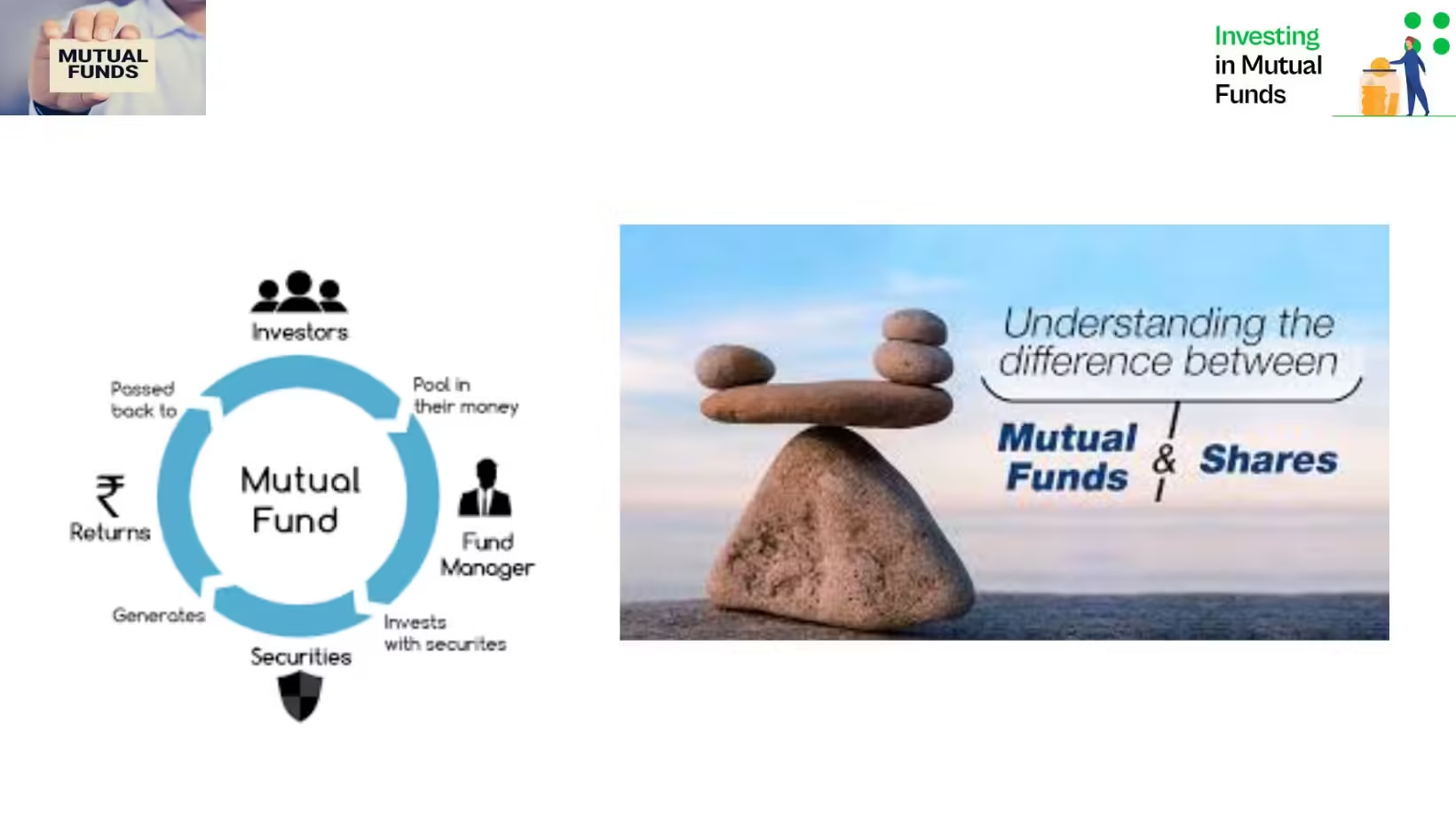What’s the distinction of Mutual Funds and Shares?
As the market for stocks rises the interest of investors in stocks is rising. The main issue is whether new investors should directly invest in mutual funds or stocks. Here are a few reasons mutual funds hold a slight advantage over stocks when it comes to investing based on individual reasons. In this article we will talk about the differences in Mutual mutual funds as well as shares. Before we discuss the differences in the Mutual Funds and Shares we must first understand what are Shares and what is Mutual Funds?
What are Shares?
Shares are the share capital of a company. The smaller shares of the capital stock of a company show their worth and are usually trade on a stock exchange. Shares can also be referred to as equities or stocks. If a business is trying to raise additional capital for its company, they sell their shares on stock exchanges by launching the market with an initial public offering.
Following the Initial Public Offering The company is traded on a stock exchange and becomes accessible to all investors. If the business performs well in its operations and expands in value, the worth of its shares will also increase. Therefore, if a shareholder has shares for a long time and earns an income through selling the shares.
What are Mutual Funds?
Mutual funds are a managed portfolio of
- Stocks,
- Bonds and
Some income structures are devoted to a specific approach to investing or specific asset type. When investors purchase shares of the fund and the company that manages it puts the money together to invest on their behalf.
Difference Between Mutual Funds and Shares
When investing money, individuals have a variety of choices in their mind. Also, he thinks about buying shares on the market, and keep mutual funds in the back of his mind. It is a question to ask should you choose between mutual funds and shares which one should you choose? Put your money into the market for shares, or put your money into mutual funds? Let us know what is the main point of distinction among Mutual Funds and Shares.
Investing Cost
The investment in mutual funds comes with certain costs since the investor must pay various fees such as the load cost, fee for expense and much more. In contrast investors who want to make a bet on the market will have to pay fees for opening a brokerage account. This includes charges for opening a new account and annual maintenance costs. In simple terms we could say that there are multiple costs included, including brokerage fees, stamp duty and much more.
Therefore, if you as an investor would like to determine the differences between mutual funds and shares and mutual funds, you’ll find that the costs of investing in shares is less expensive when compared the mutual fund.
Investing as a Beginner
If you’re a novice investor with no or little knowledge of the financial markets it is advised to begin with mutual funds since the risk is relatively low and because an expert takes the decision. Additionally, they are able to analyse and interpret financial information to evaluate the potential investment outlook. But this isn’t the case for Shares.
Multibaggers return on the right stock selection
Investors must be aware that if they make investments in the market for stocks by yourself you could earn multi-bagger gains if you select the right stocks. However, mutual funds will not offer multi-bagger gains in this short time. However, it should be kept in mind that self-investment may make your investment less effective. It’s not the same for mutual funds. In essence, greater risk comes with higher returns when self-investing. Mutual funds provide the best returns, as well as balanced risk.
Goal-based investing
According to financial experts, mutual funds are a type of investment that is geared towards achieving goals. You are aware of how much you can expect to earn each year. It is an excellent investment over time. You don’t have to be involved after investing in it. When you invest in the market by yourself, keeping up-to-date information on the sector and stock is crucial. If you trade on the stock market, or are looking to learn more about the nuances of it and nuances, then the process of investing is something that can be learned over time. Financial experts suggest investing in the stock market by themselves only after having gained the time to gain experience.
Portfolio Diversification
Experts in finance advise diversifying the portfolio. This helps to reduce the risk. Diversifying the portfolio reduces the risk. Any change in the market is not a major factor in the investment. If an investor invests in one part of a certain sector, his risk is very significant. With mutual funds your money is invested in a variety of stocks from diverse sectors. So it is possible to reap the benefits of diversification in stocks is offered in conjunction with diversification of the sector.
Below are the points of differences in Mutual Funds and Shares-
| Point of Difference | Mutual Funds | Shares |
| Type of investment | Direct investment | Direct investment |
| Diversification | You can build a diverse portfolio using a single investment. | At any given moment you can only buy an amount of shares. |
| Objective | An investment option for individuals. | The growth strategy of the company is a key component. strategy |
| Control of investments | A pre-defined portfolio of shares. You are not in control of the portfolio, nor can you opt to take out one particular stock within the portfolio. | You are responsible for the selection of shares. You are able to trade or withdraw the shares according to your preference. |
| Fixed investment | You can also invest in an investment plan that is fixed for a monthly period. Systematic Investment Plan (SIP). | Fixed investment isn’t an alternative for investments since prices fluctuate constantly. It is essential to keep an eye on the price. |
| Charges and fees | Fund management fees such as front-end load/back-end charges for load early redemption charges etc. | Brokerage fees, as well as other transaction fees. |
| Returns | The return on investment is as high as 8%.. | The returns over the long term could range from 14-16%.. |
| Types of Investor | Anybody can put money into mutual funds. | The best choice for people who specialize in stock market. |
| A growth path | Only provide good returns over the long run typically after five years. | Can provide quick returns |
| Risk assessment | Low market risk. | The risk of investing in risky assets. High market volatility. |
Takeaway
Investing in mutual funds and shares will depend on your understanding and experience in market. If you’re looking for a slower and regular income to create wealth You can opt for mutual funds. However, if you’re looking for higher yields and are focused on the basics that make up the market then you must invest in stocks. If you’re planning to invest in stocks, make sure you choose an experienced financial institution that can offer you an online Demat account and a single trading platform as well as the most accurate information about stocks. Investors are now increasingly investing in mutual unit funds. The reason is that mutual funds have produced excellent returns over the long-term. But, shares aren’t too far behind too. If you’re not sure and are looking to invest in stocks consider Equity Mutual Funds. This is the best option to get better return over the long term. However, the risk associated with mutual funds is much lower when as compared to stocks.



















